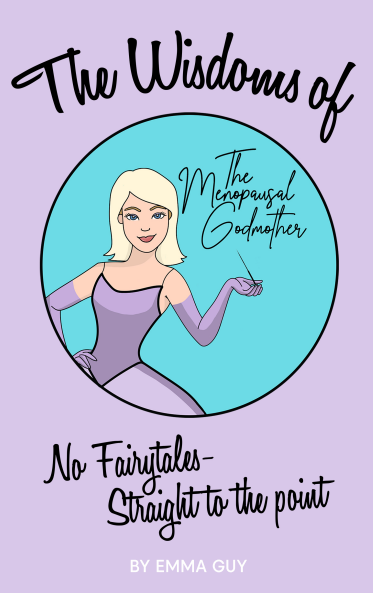It’s the one question many women ask, especially if they’re suffering from myriad symptoms of the menopause.
You may think that when your periods become erratic and you start to experience hot flushes and night sweats then you’re on the menopause but in fact, you’re probably undergoing what is called the perimenopause.
Perimenopause (peri means around) is actually a time prior to the menopause when your body is winding down its reproduction cycle.
It can share symptoms with menopause, the most common being hot flushes, night sweats and vaginal dryness, however it’s a transition stage and in extreme cases can continue for 10 years. Most women though will find that it lasts about four years – and that’s if it happens at all.
When does the menopause start?
When we experience the menopause we are actually looking back over something which has already happened – basically that you have gone a full year without having any periods. If you go for months and months without having any but then suddenly you have some menstrual bleeding then you’re still in the perimenopause stage.
The menopause is a natural part of ageing that usually occurs between the ages of 45 and 55 when a woman’s oestrogen levels decline. In the UK, the average age for a woman to reach the menopause is 51.
Most women first begin developing menopause symptoms about four years before their last period with symptoms continuing until about four years after their last period.
How do I know the menopause has started?
During perimenopause, your body begins to make less oestrogen. This continues until the last one or two years of perimenopause when your hormone levels drop rapidly. Perimenopause can start up to 10 years before you enter menopause. It often begins in your 40s, but some women enter perimenopause in their 30s.
Doctors will determine that you’ve reached menopause when you haven’t had a period for 12 consecutive months. After that, you will enter the postmenopausal stage.
What are the symptoms?
A change in the pattern of your periods is the first sign of the menopause. Other symptoms include hot flushes, night sweats, anxiety, memory problems, vaginal dryness and changes in sex drive.
Symptoms vary between individuals – some women will experience mild symptoms while others may have symptoms that have a much bigger impact on their everyday life.
Premature menopause
This is when women under the age of 40 begin menopause. About five per cent of women undergo menopause between the ages of 40 and 45.
Causes of early menopause
1. The ovaries stop working
Early menopause can happen naturally if a woman’s ovaries stop making normal levels of certain hormones, particularly oestrogen.
This is sometimes called premature ovarian failure, or primary ovarian insufficiency.
The cause of premature ovarian failure is often unknown, but in some women, it may be caused by:
- Chromosome abnormalities – such as in women with a female-only genetic disorder called Turner Syndrome.
- An autoimmune disease where the immune system starts attacking body tissues
- On rare occasions caused by certain infections, such as tuberculosis, malaria and mumps.
- Premature ovarian failure can sometimes run in families. This might be the case if any of your relatives went through the menopause at a very young age (20s or early 30s).
2. Cancer treatments
Radiotherapy and chemotherapy can have an impact on your fertility which could lead to early menopause.
3. Surgery to remove the ovaries
Having an operation to remove both ovaries will also bring on premature or early menopause.
Symptoms of early menopause
The main symptom of early menopause is periods becoming infrequent or stopping altogether without any other reason (such as pregnancy).
How do I know the menopause is over?
In the most perfect scenario, you’ll start to feel much better. Because your hormone levels aren’t fluctuating so much as they used to, you could find that hot flushes and night sweats may not be as severe, or may disappear altogether. You may experience decreased stress levels, start sleeping better and feel more positive. Many women also feel relieved not to have to go through periods every month and all that entails. They no longer feel the anxiety of PMS or have to worry about whether they’ll get pregnant, so it can be a very liberating time.
However, on the negative side, decreased levels of oestrogen can mean postmenopause you’re more at risk of osteoporosis and heart disease. Fortunately, this can be addressed by paying attention to diet and lifestyle.
What are the symptoms of postmenopause?
When you come out at the other end of menopause there’s nothing physical to tell you that this has happened but, there are a number of symptoms you will experience as a result of permanently lowered hormone level.
Many of these symptoms are also experienced as part of perimenopause and some women will continue to experience hormone fluctuations for a number of years post-menopause. Those menopausal symptoms such as hot flushes, stress, insomnia, and weight gain can persist.
But again, each woman’s experience is unique. There’s no blueprint for the menopause, it’s all about how your body adapts to the process of ageing.
It’s also easy to think you’re the only one dealing with symptoms but you’re not. Here are some of the things you may experience once the menopause has ended.
Vaginal dryness
You’re not producing oestrogen and this means the vaginal lips and vagina become less elastic, causing sex to be painful. There may also be a reduced level of mucus produced by vaginal glands which can cause vaginal dryness.
Solution: Try a vaginal lubricant that can make sex more comfortable.
Vaginal bleeding
Once your periods have stopped completely vaginal bleeding is something that could be caused by a simple infection but it may need attention.
Solution: Check with a GP that it is not a sign of something more serious.
Urinary incontinence
As oestrogen works to keep the bladder and the urethra, the passage that allows the flow of urine, healthy, lowered hormone levels during postmenopause can result in bladder control problems.
Solution: Pelvic exercises can help but you can also seek the help of a continence specialist.
Piling on the pounds
Unfortunately, with postmenopausal hormone changes often comes weight gain. This is because the body responds to lowered oestrogen levels by retaining more fat cells, in efforts to naturally lift its oestrogen levels.
Solution: Watching your diet and increasing daily exercise can help.
Insomnia
Changes to hormone levels can make it difficult for postmenopausal women both to fall asleep and to enjoy a full night’s rest.
Solution: Exercise, having a regular bedtime routine and over-the-counter, remedies may help.
The good news… in most cases, postmenopausal women will gradually stop experiencing these symptoms as hormone levels stabilise.
Menopause Support

Emma is a multi-entrepreneur. She founded The Menopausal Godmother and Acupuncture That Works. She specialises in acupuncture for menopause & fertility and has delivered acupuncture to over 1000 women going through the menopause.








